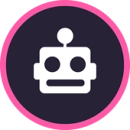Once an agriculture mecca, Colorado’s lush landscape has become home to something new: a flourishing tech hub. To support its diverse ecosystem of greentech, edtech, AI and beyond, local companies are hiring quickly and often.
With forward-thinking companies and easy access to some of America’s most coveted outdoor destinations, Colorado is the perfect place for driven engineers — whether they’re plugged in or unplugged from work.
Investors are taking notice: Colorado Office of Economic Development and International Trade recently awarded $8.5 million in early stage capital and retention grants to promising tech companies in the advanced industries sector. The grants are meant to stimulate growth and affirm the innovation that already flourishes in the Centennial State.
The richness of Colorado’s investment market is matched by its blossoming tech scene. For engineers in “Colorful Colorado,” utilizing the right tools is imperative. Built In Colorado sat down with engineers from nine leading tech companies — all of whom are hiring — to learn more about their tech stack of choice and how it helps innovation flow.
What they do: Procare is an edtech company that provides child care management and parent engagement software and integrated payment processing. Procare’s team of early education professionals creates a consultative experience for clients as they build their own businesses.
Procare’s tech stack: “Working on the Procare desktop team presents an opportunity to get your hands on a vast array of technologies. We have rich-client Windows applications and utilities written in VB.Net and C# backed by SQL Server databases; we have ASP.Net web sites and REST APIs; we have an ever-expanding suite of AWS/Cloud-based services utilizing EC2, Gateway API, Lambda, SQS, SNS, DynamoDB, Aurora, Athena, Glue, Step Functions and more.
“We are currently exploring opportunities to incorporate GraphQL into our end-points. We make heavy use of Azure DevOps, AWS CodePipeline and CloudFormation to ensure speedy delivery of code and infrastructure in a reliable and repeatable manner. Our team places a great deal of emphasis on training and we encourage each other to explore and expand our knowledge of new and exciting technologies and processes.
What we’re building now: “We are currently working closely with our talented data platform team to discover new and exciting ways to give customers valuable insight into their data that can help drive important business decisions.
“Our developers are quickly getting up to speed on data engineering practices and ETL technologies such as AWS Glue, Stitch Data, AWS Step Functions, Parquet, Athena and more. Our team has embraced the value of moving from simple data storage and retrieval to a more fundamental understanding of our customers’ data and business practices and in turn continue to focus on expanding our data mining and insight services. We recognize that to stay competitive, companies must continually evaluate their business practices and decisions and are working hard to give them the data-driven resources and tools to make this possible.”
Why I love Procare: “Like many companies and teams these days, our group is geographically distributed — which can present a distinct set of challenges. Through frequent use of Zoom and occasional on-site get-togethers, we have managed to connect on a personal level and build a comradery that I have rarely seen with distributed teams.
“This extends beyond our group as well, as we frequently interact and collaborate with others across the organization. We place a great deal of emphasis on professional respect and courtesy and work to foster an environment where creative ideas and out-of-the-box thinking are encouraged. As a manager, I love to focus on professional development and in-depth, inspiring and fun collaboration. No one on the desktop team works in isolation and the products, features and services we develop are always a team effort.”

What they do: Evolve is a hospitality company with a mission to make renting a vacation home easy for both guests and homeowners. Evolve acts as the hospitality team on both sides of every vacation rental stay — their team is driven by the goal of turning every trip booked into lasting memories for guests and a seamless experience for owners.
Evolve’s tech stack: “Having the right tools and technology is so important for our team to be able to be efficient. As a company that is continuing to grow, having tech that offers scalability and easy integrations is necessary for us to create a product that works well for our owners and guests. Some of my favorites are:
NAGESWARAN’S FAVORITE TECH
- A combination of AWS and Salesforce tech stack
- React front-end
- Node.js back-end
- Python for data-intensive applications
What we’re building: “Demand for short-term rentals is higher than ever, and pricing of properties is one of the most important factors that can impact bookings. Homeowners want to make sure their pricing reflects the market — and take into account the unique offerings the property offers.
“Our opportunity is improving our pricing strategy by collecting and evaluating millions of data points that we collect daily. With our customer-first focus, this information allows us to deliver a fair price to guests while generating the most revenue for our homeowners. It’s exciting to work with that scope of data, especially with the impact that a solution can have on the industry and for our customers.”
Why I love Evolve: “As a hospitality company, our customers are front and center in everything we do, which is why we start our work by identifying their needs and opportunities to improve their experience. Everyone on the team is empowered to do this and has a seat at the table for those discussions.
“At our last off-site visit, each team presented core problems they identified as being the most impactful. Those pitches informed our leadership team’s prioritization of projects, with the team members being entrusted to look at all of the options, identify technology solutions and choose the best ones to solve it.”
Putting the customer first: “By starting with the customer and then finding the best technology to fit the solution, this engineering team is driving durable growth for Evolve and creating powerful experiences for our owners and guests, all while having some fun along the way.”

What they do: Homebot is a fintech company that helps users save money and build wealth by encouraging smart home finance decisions. Their platform empowers consumers with personalized and actionable financial insights, and facilitates engagement with the experts through the full homeownership lifecycle.
Homebot’s tech stack: “Homebot’s main backend application is a Ruby on Rails app, and our main frontend application is built in React.js. We also use Ruby on Jets, Ember, Postgres, Elaticsearch and Redis. There’s a bit of Node, Go, and a few others sprinkled in as well. I would be remiss not to mention our dev tooling as well. Our dev ops team has leveraged AWS and Docker in a way that makes orchestrating local development and deployments to different environments feel simple. I spend most of my time in our Rails backend app, but get big-time joy from working in all of our code bases.
“In the four years I’ve been at Homebot, our tech stack has simultaneously stabilized and evolved which is a difficult balance to strike. We’ve invested a lot of thought and time into building pragmatic solutions in our existing codebases, but we never shy away from trying something new to find the best solution for a problem. Homebot places a lot of value on learning and innovation. We dedicate two weeks each quarter to a HIP (Hardening, Innovation, Planning) Sprint. The learnings and ideas that come out of those two weeks are amazing, plus we always make time to have fun together during that time.”
What we’re building: “I recently transitioned into a technical lead role for the team that focuses on our email systems, and lately I’ve been spending a ton of time doing discovery for several upcoming initiatives. It’s been a challenging, but awesome change after having been an individual contributor for a long time.
“The initiative I’m most excited about is scaling our email systems to our ever growing user base — which is already in the millions — while maintaining and protecting our excellent deliverability rate. I stumbled into email deliverability a couple of years ago at Homebot, and it’s a super fun and complex problem to manage. The solutions we’re exploring span beyond our existing ecosystem and provide opportunities to collaborate with teams that I haven’t crossed paths with very often — two things that really excite me.”
Why I love Homebot: “With my whole heart I can say it’s our people. There isn’t a person on our team that I don’t love problem solving with. I work with some of the smartest people I have ever met, everyone is passionately solution focused, they care deeply about their craft and they’re all incredibly kind and humble to boot.
“We’ve built a culture in which engineers are encouraged to learn, experiment and step out of their comfort zones. It’s true of our entire company. I remember the certainty I felt that I needed to work at Homebot, and looking back on my time here I’m really glad I trusted that instinct. I owe so much of my growth to our culture, and to our team.
“Being able to say ‘I have no idea how to solve that problem, sounds fun!’ is a really empowering feeling at work. In the four years I’ve been at Homebot, I’ve never been bored because who can tire of learning awesome things with awesome people?”
What they do: Outrider is a logistics company that provides autonomous yard operations for logistics hubs and helps large enterprises improve safety and increase efficiency. Outrider aims to drive the rapid adoption of sustainable freight transportation by deploying zero-emission systems.
Outrider’s tech stack: “At Outrider, our deep learning stack runs entirely on NVIDIA hardware and software from training to deployment. We have several large GPU servers that we use for model training and simulation. When models are ready for deployment, we run them on much smaller embedded Xaviers on the Outrider autonomous vehicles with the help of TensorRT and NVIDIA Driveworks.
“I find it really cool that with the help of a couple of NVIDIA libraries and toolchains, a deep model trained on a large, power-hungry server GPU can easily be run on a much smaller, more energy efficient processor on the edge.”
What we’re building: “At the moment, my favorite project is building a vision-based system for our autonomous vehicles to increasingly understand the distribution yard where we operate. It’s a fun engineering challenge because it uses a combination of modern deep learning techniques, as well as more traditional computer vision and camera geometry — and it all needs to run in real-time.
Why I love Outrider: “My favorite part of working on the machine learning team at Outrider is that the results of our work are very tangible. My first project was to write a C++ runtime for one of our models so that we could execute it on the autonomous vehicle. Within four months, I went from spending lots of time in front of an IDE to watching a robotic arm manipulate objects in its environment with the help of the code that I wrote.”
What they do: Wunder is a greentech company that helps businesses, municipalities and schools save money by delivering clean on-site power.
Wunder’s tech stack: “Right now, I’m really jazzed about a testing tool our team built. The tool builds a dependency graph of our primary codebase to determine the set of tests relevant to a given change. This allows our CI/CD pipeline to only run tests that are relevant to a given branch. This technique has dramatically improved our test times and feedback loops across the board.
“Foundational changes like this provide massive leverage which compounds over time. It’s really energizing to see the team’s effectiveness multiply as we improve our processes and tools.”
What we’re building: “Our software’s primary purpose is to drive a solar project through its end-to-end lifecycle. A critical component is a rule pipeline that captures Wunder’s knowledge of the solar industry. A solar project in Massachusetts has vastly different constraints than a project in New Jersey. Our system needs to capture those rules in a way that drives repeatable processes while allowing users to make rule changes as the industry evolves.
“We spend a lot of time thinking about our system in terms of composing data and workflows based on a dynamic set of rules rather than simple CRUD operations.”
Why I love Wunder: “Prior to joining Wunder around 4.5 years ago, I was coming off a year-long road trip and trying to decide the next step in my career. I was a bit jaded by the direction of many technology companies and was committed to finding a company which was oriented around a mission I was passionate about. At the same time, I was still very interested in working on engaging software problems.
“In my experience, mission-driven companies that also have hard engineering problems to solve are quite rare. Wunder is unique in that sense and a perfect fit for me.
“We build software which directly targets combating climate change and also have a strong engineering culture. We’re committed to giving exceptional engineers autonomy and space to solve hard problems. It’s a super motivating place to work and I’m always learning from the folks around me.”

What they do: Skupos is a big data and information technology company that supports the convenience retail industry through technology that connects both retailers and brands to their shoppers. Skupos focuses on independent stores and small chains — which make up nearly 80 percent of the market.
Skupos’ tech stack: “Skupos at its core is a large scale data platform for the convenience retail industry, through which we are able to build advanced analytics for our customers. Our tech stack is a deliberate mix of flexibility and scalability: We connect to over 15,000 different retailer POS devices through our robust data collection and persistence layer-running on AWS. Our data pipelines are built on Apache Spark and Snowflake.
“This mix allows us to be cost effective for common data transformation steps through Apache Spark and enable quick iterations on more custom downstream data pipelines through the flexibility Snowflake offers.
“We recently started migration to DBT Cloud for our SQL heavy data pipelines. So far, we have been very impressed with smooth CI/CD integration combined with test driven workflow and observability offered by DBT.”
What we’re building now: “The most transformative project for the core engineering organization at Skupos is building the path to fully embrace DataOps for our data pipelines and analytics with MLOps as the next step. Our team includes engineers with varied skill sets, including Software engineers, data engineers and data analysts.
“The journey we’ve taken requires everyone to master the combination of DevOps best practices and statistical process control methods in the context of data flows. We are rewriting and rewiring the majority of our data pipelines through the newly built foundation and looking forward to the data reliability and observability for our organization as well as for our partners.
“I really enjoy brainstorming and collaborating with my team through this process. And I am very happy at the pace we are able to move through this transformation while supporting our existing commitments.”
Why I love Skupos: “We operate as a startup with relatively small engineering teams: Everyone in the team is expected to wear multiple hats. Having worked at bigger organizations in the past, Skupos is a refreshing change having a bias towards rapid execution though still doing it in a highly collaborative way.
“Even though we have evolved into a highly distributed organization, the strong culture of Skupos makes it all appear as a well knit family. In addition to regular work, individuals in each team make an effort to bond with their peers and organize fun events well supported by the HR. For example, at the SF office, we recently did a big board game night and are doing a luxury yacht tour of the bay next month. Such examples of events organized by individuals reinforce the empowerment and trust Skupos places in its employees to reach their full potential!”
What they do: CampMinder is a web and mobile enterprise company that provides SaaS products that help summer camps streamline their business operations. CampMinder places values at the heart of their decision-making framework.
CampMinder’s tech stack: “We have several teams with different stacks at CampMinder. The front-end team works on the newer products: We live and breathe React and TypeScript. Our mobile product uses React-Native and MobX-State-Tree. Our web product uses regular function-based React with hooks. We use strict TypeScript and ESLint rules, which helps us keep our code clean and statically analyzed.
“Recently we started using React-Query in both projects — which has brought a lot of value on the data-fetching side. It eliminates a lot of custom boiler-plate and handles things like tracking fetching state and caching right out of the box.”
What we’re building: “I’d say the most challenging project right now is reimagining our mass communication slice of functionality from our existing ASP.NET product, with the goal of re-creating it in our new React-based web application.
“It’s been fascinating designing a new experience in a new location while integrating with the existing endpoints and services that our customers currently use and rely on. We have really good designers, product folks and engineers — so we’ve been able to come up with a lot of creative solutions as a team. Getting to see how the new stuff feels after building it and imagining how our customers will enjoy it when they can migrate over brings good feelings.”
Why I love CampMinder: “The majority of my team is remote and working from different states and across the United States. There’s flexibility to work the hours we prefer in our own time zones, and it’s easy enough to overlap for real-time meetings which are typically held midday Mountain Time, where CampMinder is headquartered.
“We all have unique backgrounds and past experiences that we bring to the table to benefit the team. CampMinder’s core values help create a solid foundation for how we work and relate with each other.”

What they do: AirDNA is a travel and software company that provides data and business intelligence for the travel and vacation rental industry. Their self-serve platform empowers Airbnb hosts to get ahead in the short-term rental landscape with competitive market insights.
AirDNA’s tech stack: “Our core platform is built on AWS and Kubernetes. On top of that, we layer Spark, Postgres, Druid, Flask and React. Our languages are Scala, Python and TypeScript. Operationally, we love using Gitlab CI/CD, ArgoCD, Datadog and Airflow.”
What we’re building now: “We’re in the process of leveling up our whole platform. It’s pretty awesome and involves a ton of green-field development and elimination of tech debt that we’ve shouldered for a while. We’re migrating all data processing to scalable systems built on Spark and are re-inventing our application stack using new architectures that drive better scalability, performance and security.”
Why I love AirDNA: “I can’t speak for everyone on this, but I have fun at work. I never dread going to work — unless someone books a meeting before 9 am!”
WHAT MAKES AIRDNA UNIQUE
- No-blame culture. We understand that most incidents are a failure of process, not people.
- Everyone has agency, and management encourages a bias towards action.
- We have the tools, access and support we need to do our jobs without many roadblocks.





















